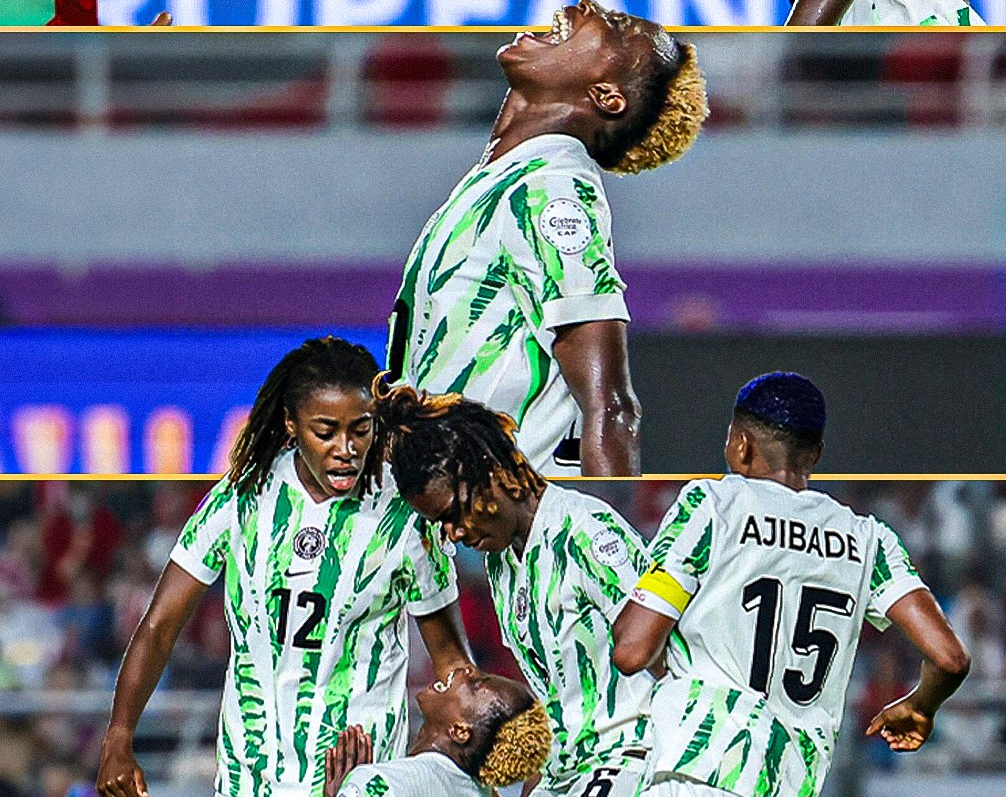“When the stomach aches, fine clothes can’t hide the pain.” This Yoruba proverb resonates loudly across today’s Nigeria – a country grappling with poverty, economic despair, and deep systemic dysfunction. And yet, amid this reality, President Bola Tinubu’s administration has rolled out a golden carpet of rewards to the Super Falcons for their remarkable victory at the 2025 CAF Women’s Africa Cup of Nations (WAFCON). Each player is to receive $100,000, a three-bedroom house, and the national honour of Officer of the Order of the Niger (OON). Technical crew members are slated for $50,000 each, while the Nigerian Governors Forum added a collective ₦360 million, with every governor contributing ₦10 million to the prize pool. In total, over ₦4.3 billion has been earmarked for fewer than 40 individuals. The country erupted in applause – and rightly so. The Super Falcons have carried the nation’s flag with grace and courage, not only clinching continental glory but also inspiring millions in a country desperate for heroes. Their triumph represents more than sport; it is a rare burst of joy in an otherwise grey national mood. But the applause, like everything else in Nigeria, is not without its echo.
A Celebration Too Loud?
To all intents and purposes, the debate is not whether the Super Falcons deserve to be rewarded. They do, fully and unquestionably. In a world where women’s sports often get shortchanged, recognizing their achievement sends a powerful message about equity and national pride. The question is about timing, priorities, and optics. Nigeria’s current economic crisis is no secret. Inflation is hovering above 35%. The naira has lost over 60% of its value in under a year. Food prices have tripled, and fuel costs have made transport inaccessible for millions. The new national minimum wage of ₦70,000 barely buys a bag of rice. Hospitals lack basic medication. Public universities are underfunded. Pensioners die in queues. And young Nigerians are fleeing the country in droves; not because they hate it, but because it no longer works for them. In this context, awarding billions in cash and luxury housing to athletes, while teachers, doctors, and civil servants earn mere survival, feels like a slap to the face of millions of silent national heroes.
A Misplaced Message
This is not just about money. It’s about the message. When a government can mobilize billions within weeks for a football team but struggles for years to pay minimum wage or build functioning hospitals, the symbolism is deafening. It tells a hungry nation that excellence is only valued when it entertains, not when it educates or heals. It tells children that the football pitch is a surer path to recognition than the classroom. It tells civil servants that decades of national service may not earn them what one AFCON tournament can deliver. It tells teachers that shaping minds is less noble than scoring goals. And in doing so, it unwittingly devalues national service, setting dangerous precedents for what is celebrated, and what is ignored.
Government by Optics
The Tinubu administration, like many before it, appears increasingly enamored with optics – quick wins, dramatic gestures, and headline-grabbing moments. But nation-building is not theatre. It requires substance over style, equity over spectacle, and policy over propaganda. No serious country allocates scarce resources based solely on viral moments. Great nations balance inspiration with inclusion. Rewarding female footballers is noble. But doing so while hospitals lack power, schools lack books, and pensioners lack dignity is reckless, and worse, insensitive. Another popular proverb also warns that “when the house is on fire, you do not waste time chasing rats.” Yet that is precisely what Mr. President seems to be doing: feeding milk to rats while the house crumbles under inflation, unemployment, and insecurity and bad governance.
Opposition’s Fire Without Light
To be fair, the backlash hasn’t only come from citizens. Members of the opposition, including elements within the African Democratic Congress (ADC) and others, have lashed out, condemning the spending spree as irresponsible. But here, too, caution is needed. Some of the opposition’s language has veered into vindictive populism, more concerned with scoring points than proposing real solutions. Branding every government action as wasteful, while offering no credible alternatives, undermines their credibility. Worse still, it risks reducing the discourse into a contest of rage, rather than a conversation about vision. In criticizing government missteps, the opposition must resist the temptation to mirror the very recklessness it condemns – swapping one form of political short-sightedness for another.
Can there be a middle ground? Yes. The issue has never been about rejecting reward; it is about recalibrating it. A more symbolic gesture, such as lifetime pensions, national recognition, scholarships, or performance-linked grants, could have preserved the dignity of the gesture without igniting resentment. More importantly, rewarding other categories of national contributors – nurses, teachers, security forces, agricultural workers, and researchers – would show that Nigeria values service across all sectors, not just the glamorous ones.
When Applause Drowns Accountability
The Super Falcons have done Nigeria proud. They deserve national gratitude. But a billion-naira celebration in the middle of mass hunger risks turning gratitude into grotesquerie. A nation that can afford to decorate its roof should first fix its leaking walls. As another popular adage reminds us: “charity begins at home.” In the end, patriotism is not measured by how loudly we cheer, but how justly we lead. It is easy to give awards. It is harder to build a system where dignity is the birthright of all; not the prize of a few. Let us reward our heroes; but let us also not forget the millions who remain heroic in silence.





